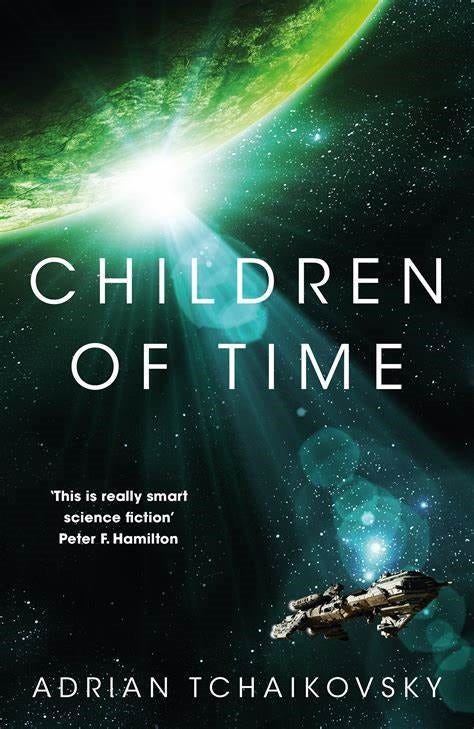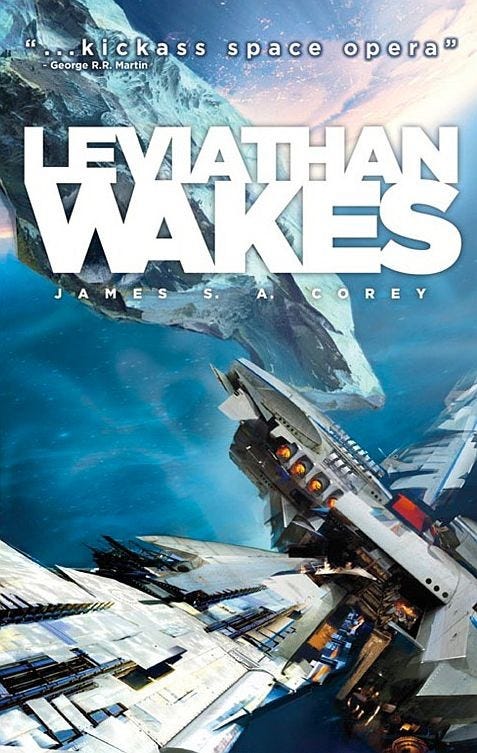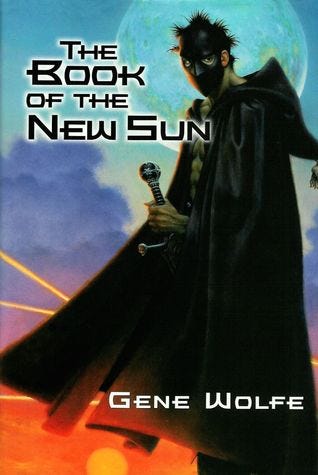KE Wolfe is actually two writers—Kyle Muntz, and e rathke. But one of the reasons we’re able to work together so well is we have very similar influences and, over the years, have enjoyed all the same authors. Often we’ve read, discussed, or even reread these authors years apart, and it’s been a blast to borrow and recombine elements of all of their work to create something new with The Shattered Stars.
Our promotional material for The Shattered Stars emphasizes the influence of retro science fiction shows like Star Trek: The Next Generation and Firefly, as we’ve done our best to emulate that fun texture and flow in written form. But at the same time, stylistically and thematically we’ve been influenced by writers from deep in the genre, such as:
Ursula Le Guin—The Shattered Stars is definitely soft science fiction, with more emphasis placed on sociological themes and characterization than hard science. Both of us discovered this side of the genre through Ursula Le Guin, with books like The Dispossessed and The Left Hand of Darkness. We particularly like how Le Guin allows readers to come to their own conclusions, rather than trying to teach or explain something to them. Her writing is complex and nuanced, with an eye for points other people haven’t made before and a willingness to go beyond conventional wisdom on a topic. There are a lot of strange, unfamiliar worlds in The Shattered Stars, and we hope you’ll see an echo of Le Guin in all of them.
Adrian Tchaikovsky—For us, science fiction is always about the thrill of discovering something new, shocking: an idea that seems to expand your mind just from thinking about it. For us, there’s no modern writer who does this better than Tchaikovsky in Children of Time. This is a novel about humans encountering a race of sentient spiders, but Tchaikovsky does a marvelous job not just making his aliens interesting, but also nuanced and relatable, while dedicating a remarkable amount of attention to their culture and history. Many episodes of The Shattered Stars focus on introducing new, unfamiliar planets and cultures, but as much as we love Star Trek, we’ve hoped to approach the idea of life across the galaxy with a bit more nuance, and Tchaikovsky has been one of the main places we’ve looked for inspiration.
James S. A. Corey—The Expanse is an unavoidable influence for The Shattered Stars, and not just because, like ours, the series was written by two authors working together. It’s also one of the quintessential modern space operas, setting a standard for how to include complex themes and characters in a piece of modern SF, while also showing the focus on characterization that co-author Daniel Abraham is famous for. This is a standard we’ve done our best to meet in The Shattered Stars. That said, we’ve also occasionally found this series loses focus occasionally, with a cast that eventually just gets too large, and we’ve also done our best to learn our lessons from it and attempt (with a bit of hubris) to make something a bit more immediately rewarding for the reader.
Gene Wolfe—Gene Wolfe is famously the author of complex, elliptical series such as The Book of the New Sun, a novel that describes the adventures of Sevarian the Torturer as he ventures across a future earth so radically changed it’s become unrecognizable—a place so strange every detail is a revelation. He’s also where we took part of our own name. It’s definitely ironic, then, that Wolfe’s influence on The Shattered Stars is hard to spot. But one thing we love about Wolfe is his ability to constantly surprise the reader, which is an effect we’re constantly aiming to imitate. We also enjoy how he keeps his plots small and focused, and—especially—his approach to worldbuilding. Rather than assaulting the reader with walls of exposition, Wolfe is a master of hinting at small details in dialogue and character interactions: of keeping a story moving and constantly taking it somewhere you didn’t expect. This is a large part of both of our styles and a lot of that can definitely be traced back to Wolfe.
Robin Hobb—Hobb might seem like a surprising choice, as she’s a writer of epic fantasy series rather than science fiction. But her influence is unavoidable in The Shattered Stars, as both of us unambiguously agree that Hobb is our favorite writer. In particular, we love her approach to characterization: subtle, nuanced, and complex. Hobb’s stories are big but they’re always about people—subtle, broken, flawed, yet lovable. Most importantly, we enjoy how her plots grow out of her characters and focus on relatable, personal problems rather than getting lost in complex intrigue or politics, as well as her understanding of how complex relationships can grow and change over time. Our favorite of her series is probably The Liveship Trilogy, but we strongly suspect no one will ever write a better book than Hobb.
Samuel R Delany—While Delany is famous for his literary prose style, we’ve always enjoyed the deep thematic complexity of his writing. We’re especially interested in the balance of fun and big ideas in books like Nova and Babel 17, while also including hints of the big ideas you’d see in a book like Triton or Dahlgren. Delany was a gateway into science fiction for both of us, and we still enjoy reading him today. But more than anything, for us, Delany demonstrates the real extent of what science fiction can do—that it can be a way not just of enjoying yourself, but expanding your thoughts, while also exploring complex issues of identity and even the nature of reality.
Read the first three chapter of Sleeping Giants.
Check out the Pay What You Want offer for paying subscriptions
Some free books for your trouble:









